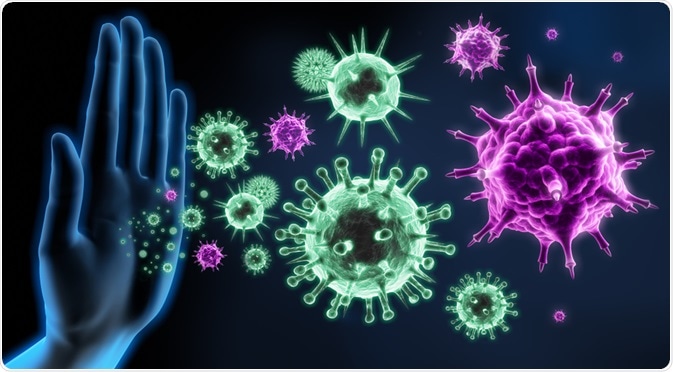By Sarah Keogh, Dietetic Consultant, Coeliac Society of Ireland
Everyone is thinking immunity at the moment. At the Coeliac Society we have had lots of people asking us what they should be eating to keep their immune system working. There is nothing you can eat or take that will boost your immune system but it makes sense to ensure you are eating a healthy diet at this time so that your immune system can work properly.
For people with coeliac disease, the only treatment for this lifelong autoimmune disease is a strict gluten-free diet. Yet just 13,000 of the estimated 50,000 people in Ireland with coeliac disease have been diagnosed. The remaining 37,000 people – as well as an estimated 350,000 people with some form of gluten intolerance – will have a reduced capability to absorb the nutrients they require to keep their immune system strong. Symptoms of untreated coeliac disease can include abdominal pain, recurring mouth-ulcers, weight-loss, vomiting and diarrhoea. If untreated, coeliac disease can affect fertility and lead to other health conditions such as osteoporosis and even cancer. People with underlying chronic conditions such as these and others are at higher risk of serious illness.
The Coeliac Society of Ireland website has information about Covid-19 for those with coeliac disease, while below is advice from dietitian Sarah Keogh about key foods and nutrients that everybody needs to help keep their immune system fighting fit.
Can Diet Make You Bullet Proof? There is no diet, food or nutrient that is going to make you immune to every bug that is going but we can make sure that our bodies have the nutrients we need to help support our immune system to do its job –whether you are trying to avoid an infection or if you already have one. The most important thing to do is to wash your hands well. You’d be surprised how many infections are spread by touch. Use soap and water – and proper handwashing technique. Many people don’t actually wash their hands properly but the HSE has advice on how to do it:
How to wash your hands with soap and water
- Wet your hands with warm water and apply soap.
- Rub your hands together until the soap forms a lather.
- Rub the top of your hands, between your fingers and under your fingernails.
- Do this for about 15 seconds.
- Rinse your hands under running water.
- Dry your hands with a clean towel or paper towel.
Protein; Your immune system responds to an infection by making lots of new cells. These come from your bone marrow and you need to have enough protein to allow your body to make all the new cells it needs. This doesn’t mean you have to go crazy with the protein shakes. You just need to make sure you have some protein coming in at every meal. It is a good idea to make sure that protein makes up about ¼ of your plate and lunch and dinner. There is no harm have a little protein at breakfast too. Try having an egg at breakfast (one is plenty); peanut butter or almond butter on gluten free toast or adding seeds to breakfast cereals and gluten-free porridge. If you are vegetarian you need to have 3 handfuls of beans or lentils every day to make sure you are getting enough protein. You can also add protein by snacking on nuts and seeds.
Protein foods include:
· All kinds of meat, chicken and fish
· Beans like chickpeas, kidney beans, cannellini beans and black beans
· Lentils – red, green or brown
· Eggs
· Shellfish
· Nuts and seeds
Vitamin C
Probably the most famous nutrient for immunity is vitamin C. Vitamin C is found in vegetables and especially fruit. You need to be eating 5-7 servings of fruit and vegetables per day. The easiest way to do this is to make 1/3 – ½ of your meals fruit, salad or vegetables. Try having fruit with breakfast; a bowl of vegetable soup or a side salad at lunch and a stir-fry at dinner.
Do you need a supplement? If you are eating all your fruit and vegetables you will have more than enough vitamin C.
B Vitamins
The family of B vitamins are involved in everything from making new blood cells and metabolism to reducing tiredness and fatigue and keeping immune system up and running. You find different B vitamins in different foods. Milk, chicken, eggs and yoghurt are all good sources of vitamin B12. Find other B vitamins in fish, almonds, hazelnuts, bananas and wholegrains.
Zinc
When it comes to the immune system, zinc is the new vitamin C. Find zinc in seeds like sunflower seeds and sunflower seeds as well as nuts like walnuts, cashews and Brazil nuts. Add seeds to breakfast cereals or smoothies and chop nuts through salads or have as a snack.
Sleep
Don’t underestimate this one. No matter what you eat, you will still run into problems if you don’t get enough rest and sleep. Try to get at least 7 hours a night with between 8 and 9 hours being best of all. And do try to get to bed early a few nights a week. Your body really benefits from getting the head down well before midnight. Remember: “An hour before midnight is worth two after”.


